Dog Breed
Shih Tzu
Friendliness
Exercise Needs
Health Issues
Barking Tendencies
Grooming Needs
Shedding Level
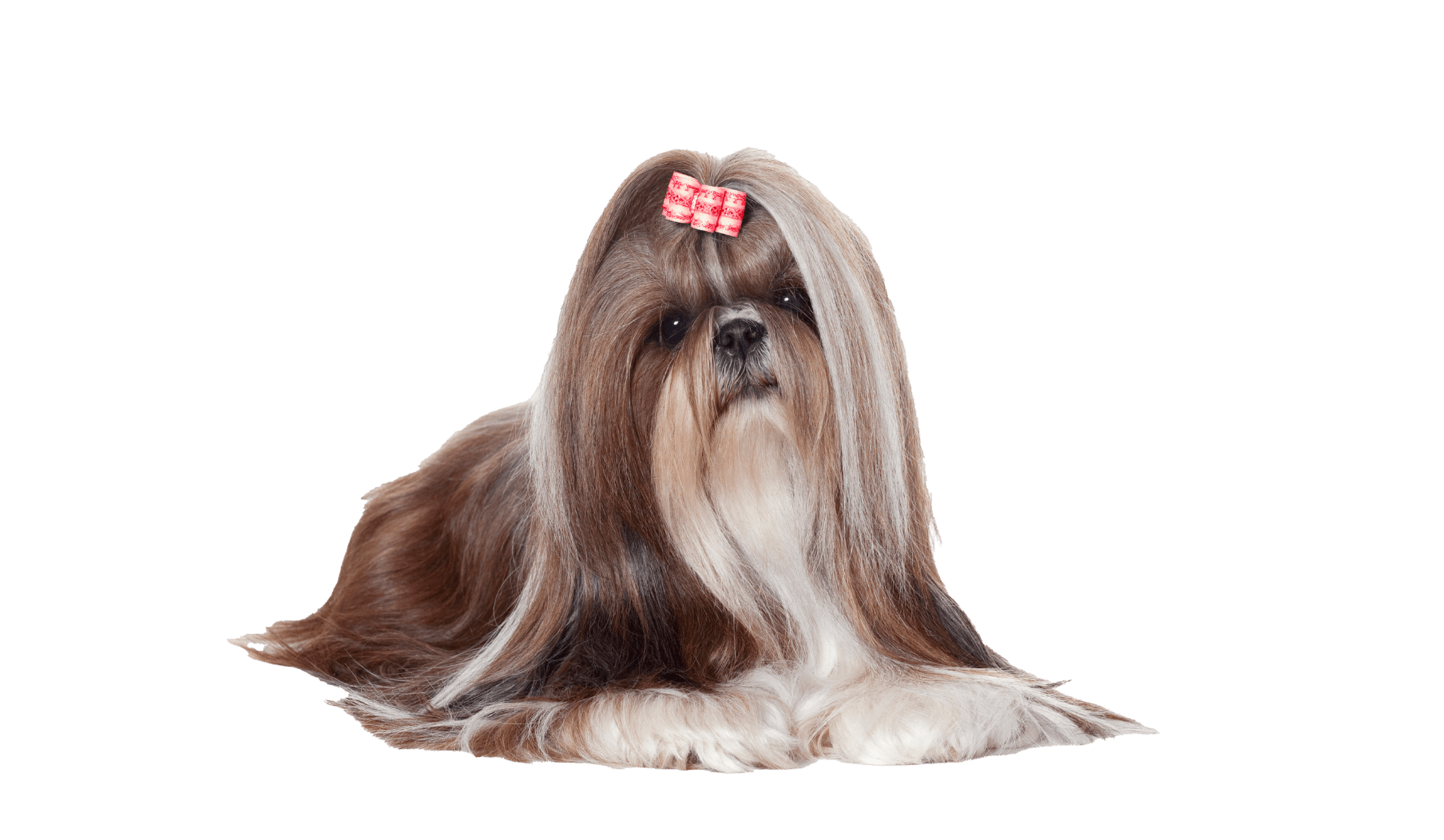

Charismatic companion
Shih Tzus are small in size but big on personality, and they make wonderful companions. Outgoing and friendly, Shih Tzus will shower you with affection and make visitors feel welcome, too. These active and curious dogs may want more out of life than just sitting on your lap, so consider teaching your Shih Tzu tricks or even competing with them in agility!
Shih Tzus usually are great with children, but because of their small and cute size, children may treat them like stuffed toys and accidentally injure them. That means it’s very important to monitor interactions to ensure everyone stays safe.
Caring for your Shih Tzu
Nutrition
Choosing the right food
Every dog is unique. From the small, flat-faced Pug to the obesity-prone Labrador Retriever. ROYAL CANIN® Breed Health Nutrition is tailor-made to address the unique needs of pure breed dogs. These breed specific formulas benefit from the latest ROYAL CANIN® research on the selection of the best protein sources, unique nutrients and tailor-made kibbles.
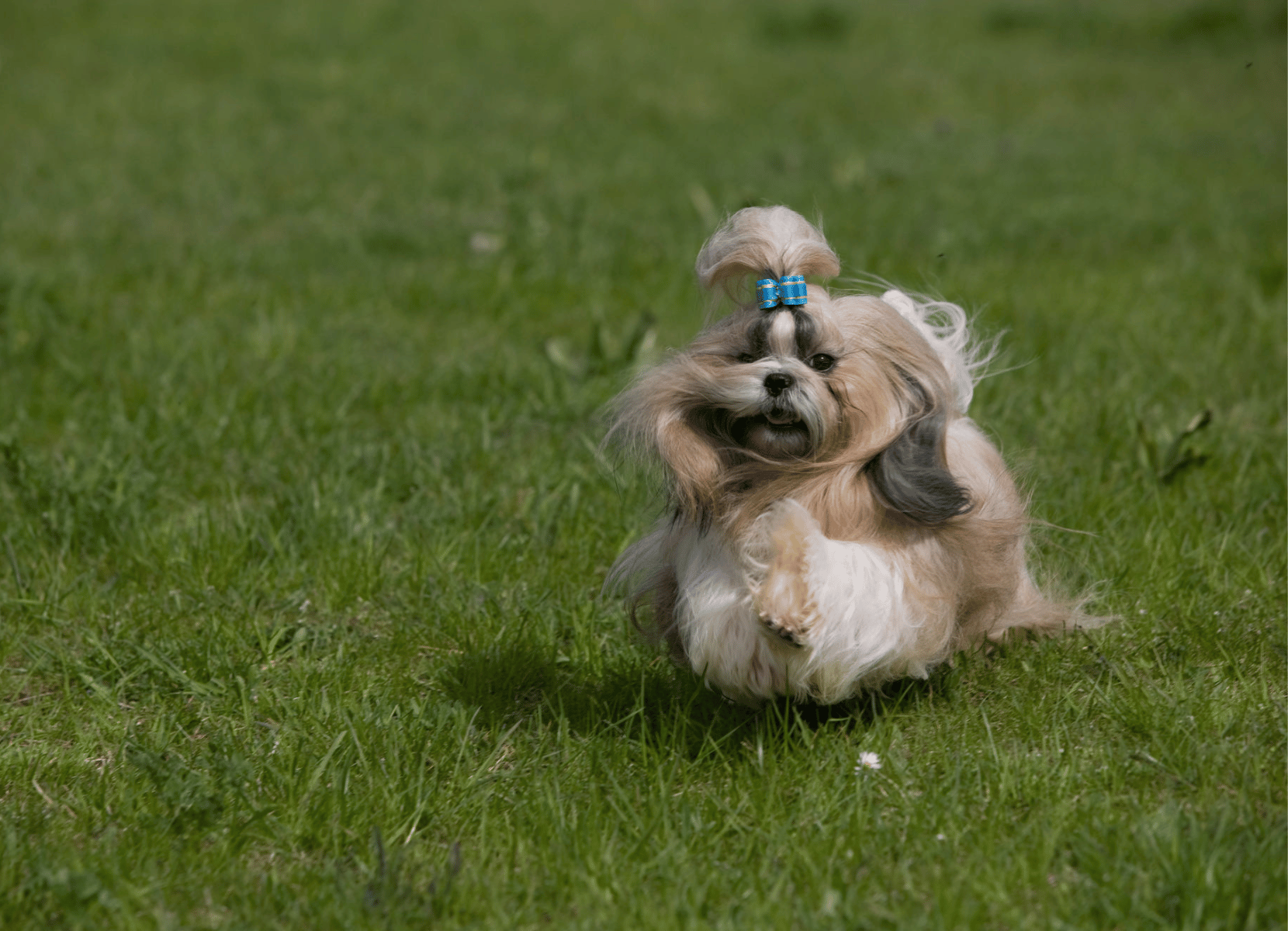
Exercising your dog
Because of their potential back and breathing issues, carefully monitor exercise for Shih Tzus.
They need enough exercise to maintain their weight and keep their muscles strong, but avoid activities that cause strain on the spine, like leaps, jumps and twists.
Overheating is a potential problem if your Shih Tzu can’t pant normally or has long hair.
Lead walks of moderate length and speed generally provide sufficient exercise for most Shih Tzu dogs.
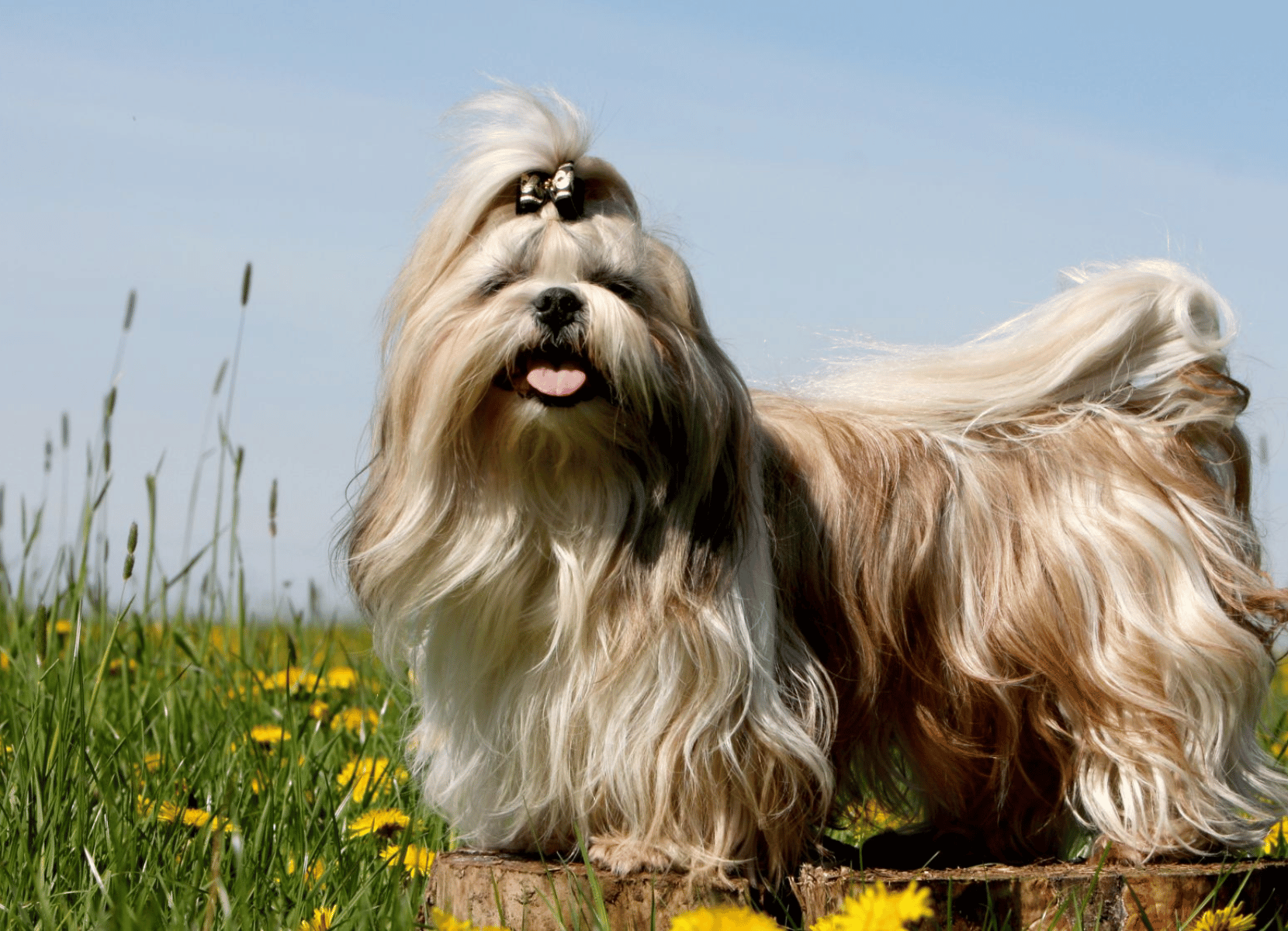
Training your Shih Tzu
Shih Tzu training is pretty straightforward: Use positive reinforcement and you can get them to do just about anything!
Shih Tzus can learn to sit, lie down, stay, come when called, perform tricks, do obstacle courses and more. They can learn all the same skills as larger dogs, in fact!
One training task that can be a challenge with Shih Tzus is potty training. Possibly due to their small size, some Shih Tzus seem to have a hard time “holding it.”
To help your Shih Tzu learn where to potty, take them out regularly and reinforce them with praise and treats for doing their business outdoors.
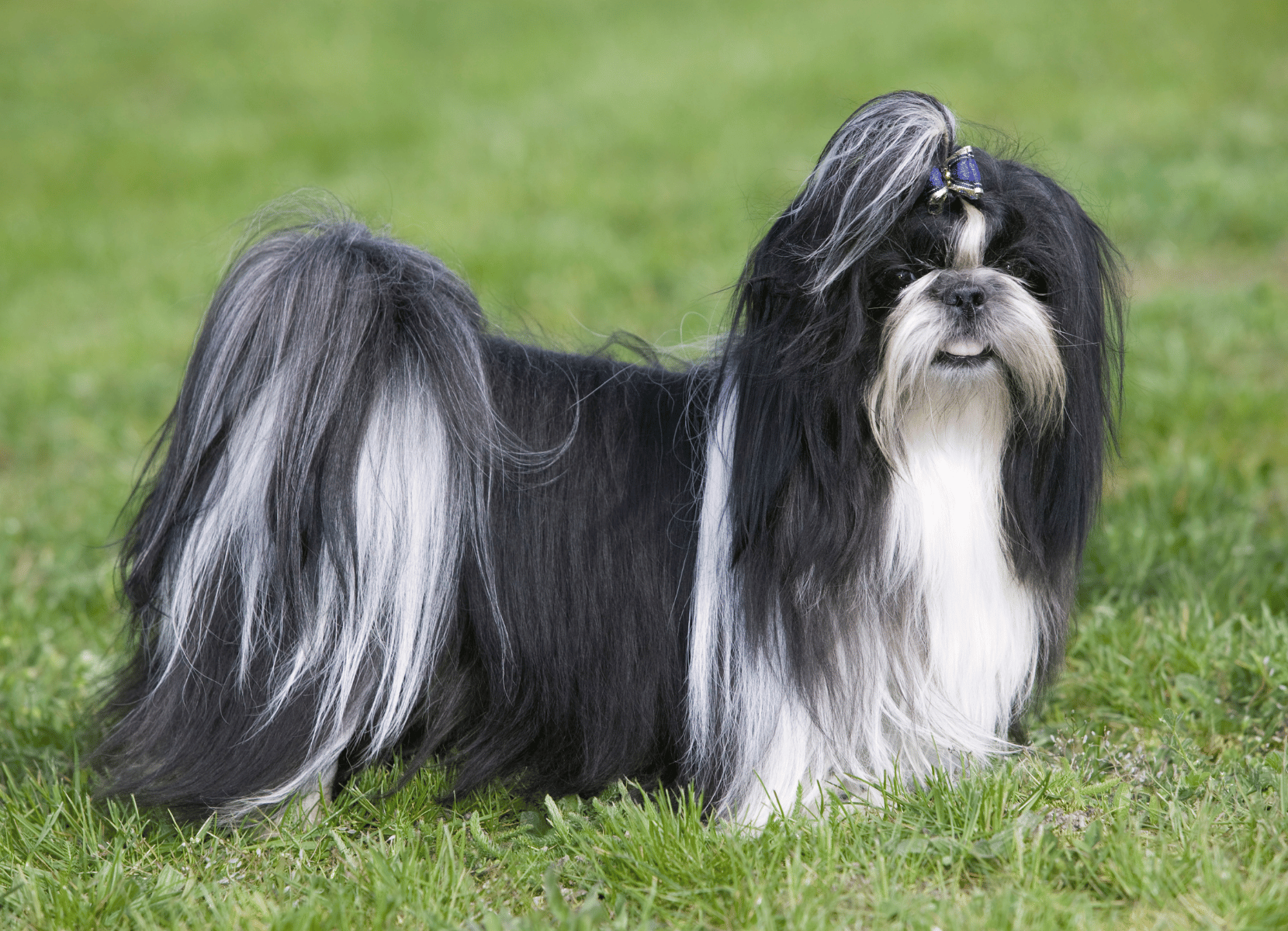
Your dog's health
By recognising health problems in Shih Tzus early you can seek advice and treatment from a veterinarian.
Reduce the risk of health problems by purchasing a puppy from a responsible breeder. Always inspect breeding facilities and breeding dogs, and never buy from a distant online seller.
Health Issues to watch out for:
Intervertebral Disk Disease
Respiratory Problems
Eye Problems
Dental Disease
Orthopaedia Conditions
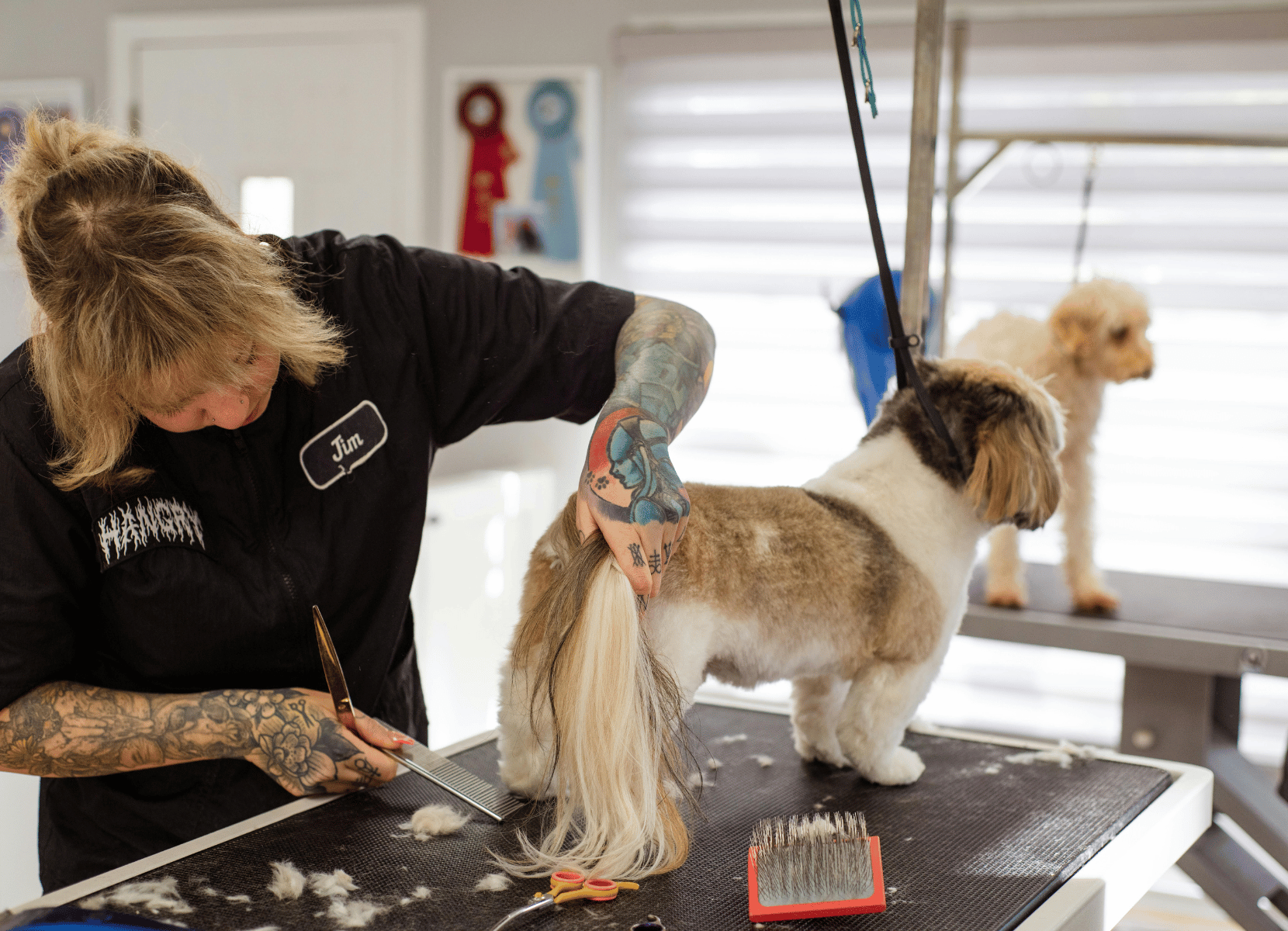
Grooming your dog
Shih Tzus shed small amounts of hair, and, while this does not make the Shih Tzu hypoallergenic, it does make this breed a good choice for dog allergy sufferers.
Shih Tzus require regular trips to the groomer to keep their hair trimmed in a short and more manageable style. This means that you’ll only have to brush your dog a few times a week. A rake or deshedding tool will also be essential to keep on top of their long double coat.
Bath time is a great time to check their ears for any wax or debris build up and signs of infection - redness or irritation. Gentle ear cleaning wipes are a quick and easy way to keep their ears clean and healthy. They’ll need their nails clipped occasionally too. Finally, brush their teeth everyday.
Key characteristics of Shih Tzus
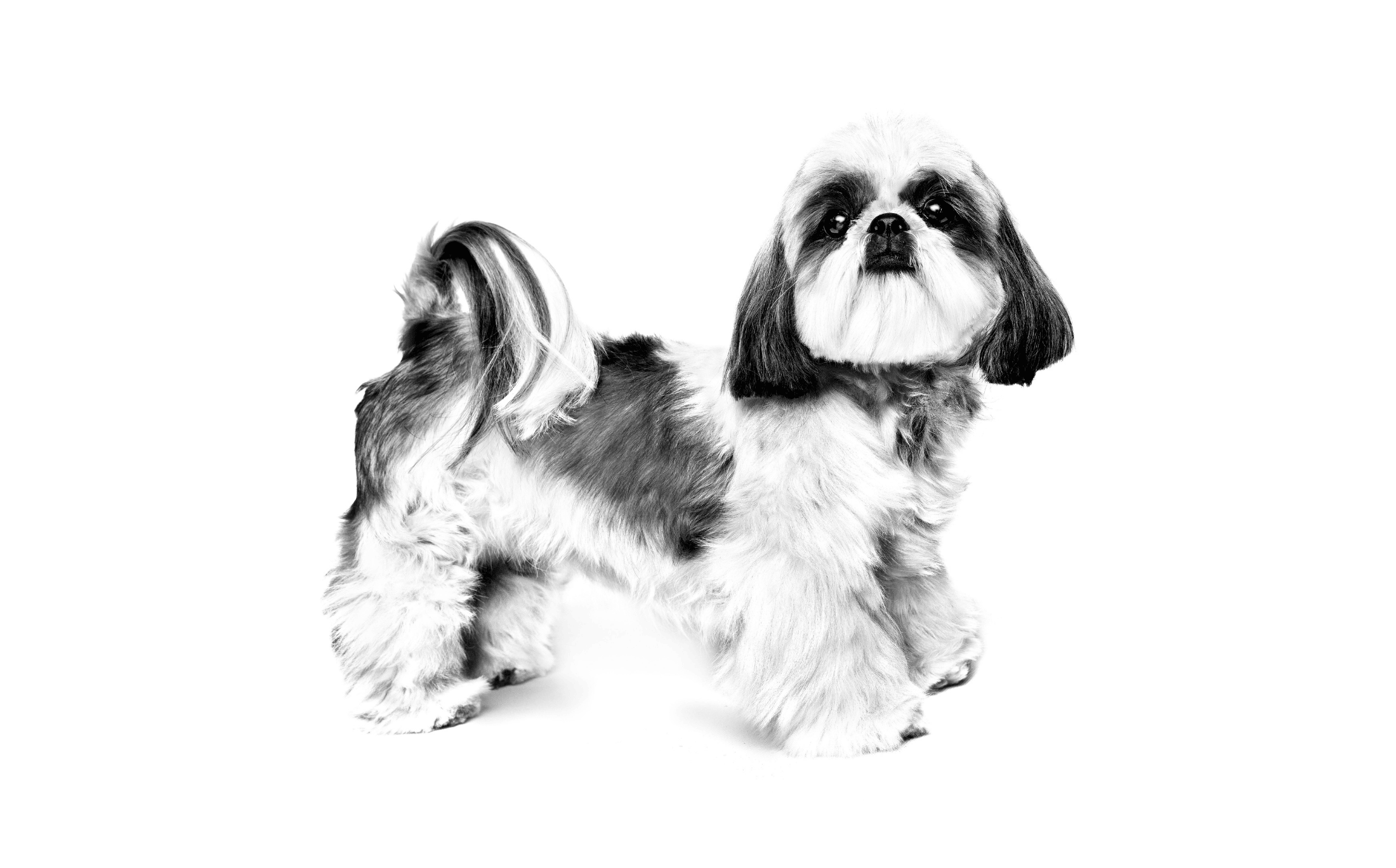
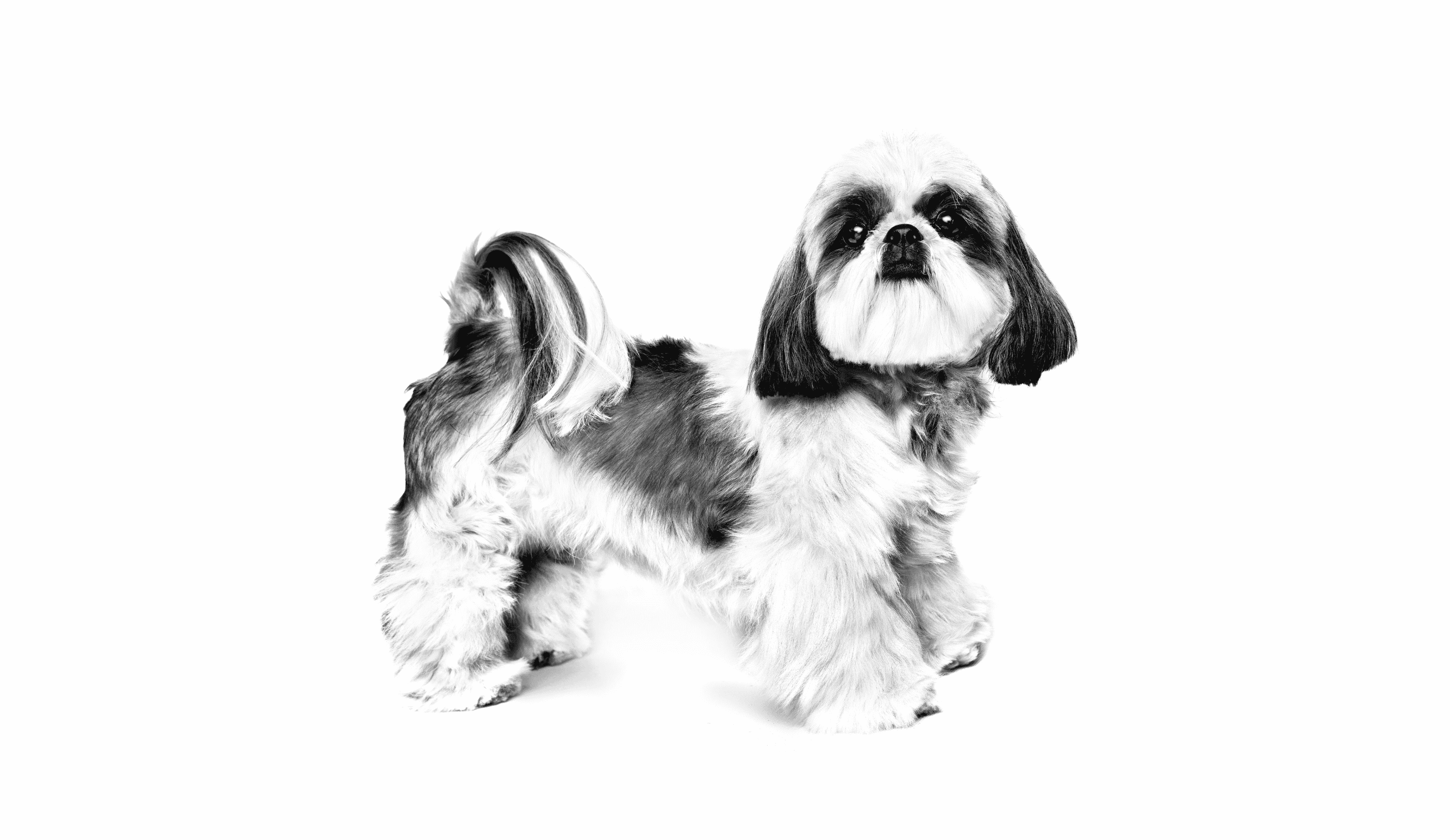
Shih Tzu FAQs
If you’re exploring life with a Shih Tzu, these FAQs offer answers to popular questions about their grooming needs, temperament, and unique quirks. Whether you're a new owner or planning to adopt, here's what you need to know about this charming companion.
Are Shih Tzus considered hypoallergenic dogs?
While no dog is completely hypoallergenic, Shih Tzus are a better choice for allergy sufferers. Their long, low-shedding coat helps reduce dander in the home when paired with a regular grooming routine and frequent bathing.
How often should I groom a Shih Tzu at home?
Shih Tzus require daily brushing if kept in full coat and at least 2–3 times a week for shorter trims. Use a pin brush and detangling spray to prevent mats and focus on areas like the face, ears, and armpits where tangles form easily.
Are Shih Tzus good dogs for first-time owners?
Yes, Shih Tzus are generally friendly, affectionate, and adaptable, making them a great choice for first-time pet parents. Their exercise needs are manageable, and they thrive in both apartments and homes when given love and structure.
Do Shih Tzus overheat easily in hot weather?
Yes, due to their flat (brachycephalic) faces, Shih Tzus can struggle to regulate heat and are prone to overheating. Always provide shade, fresh water, and avoid midday walks. Air-conditioned environments are ideal in warmer months.
Is crate training helpful for a Shih Tzu?
Crate training can help with housebreaking and create a safe, calming space for your Shih Tzu. Choose a crate that feels like a cosy den, and introduce it with positive reinforcement to make it a stress-free environment.
These FAQs aim to make life with your Shih Tzu easier by answering real-world questions pet parents often ask. With the right care and a little patience, this affectionate breed will fill your home with love and companionship.

